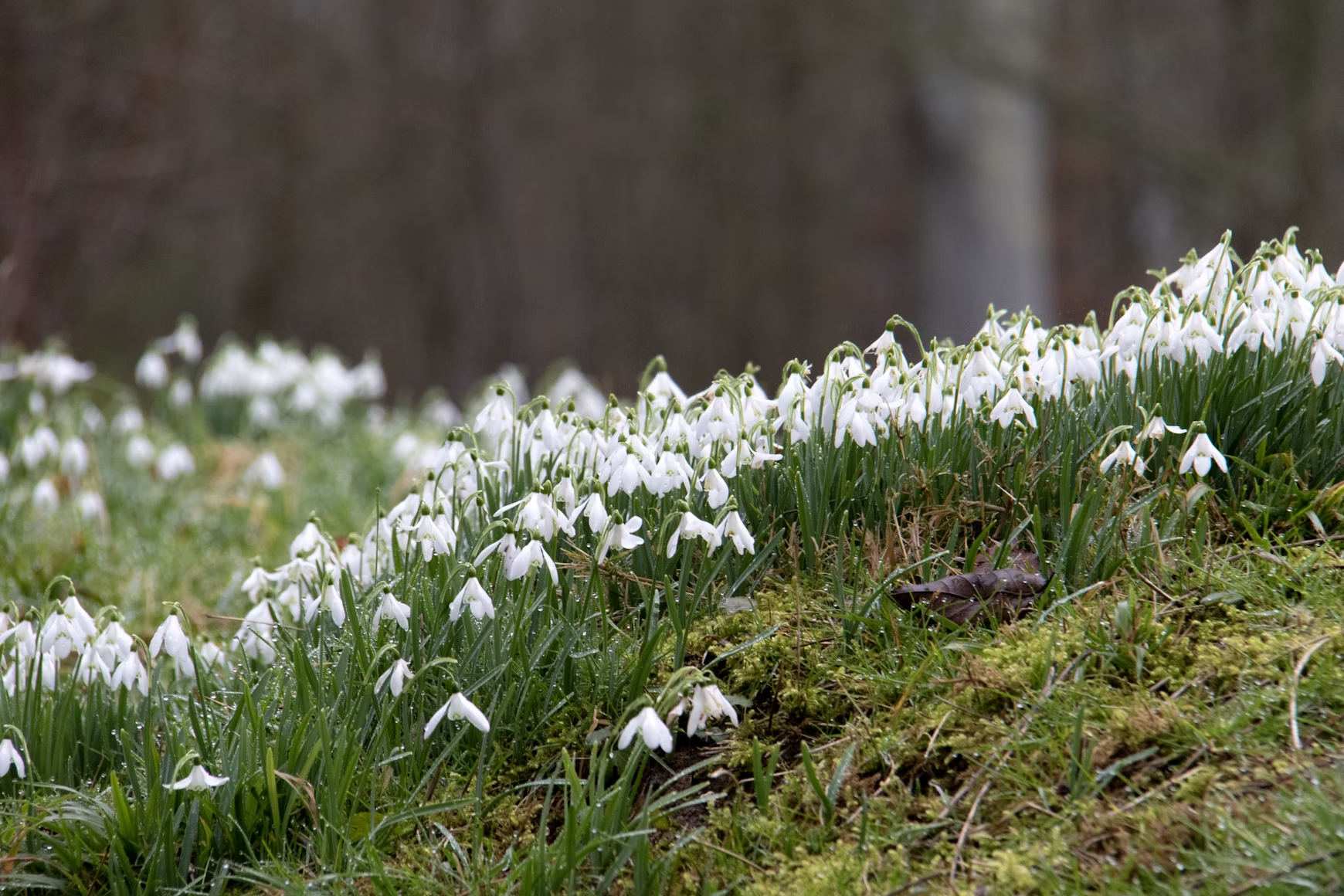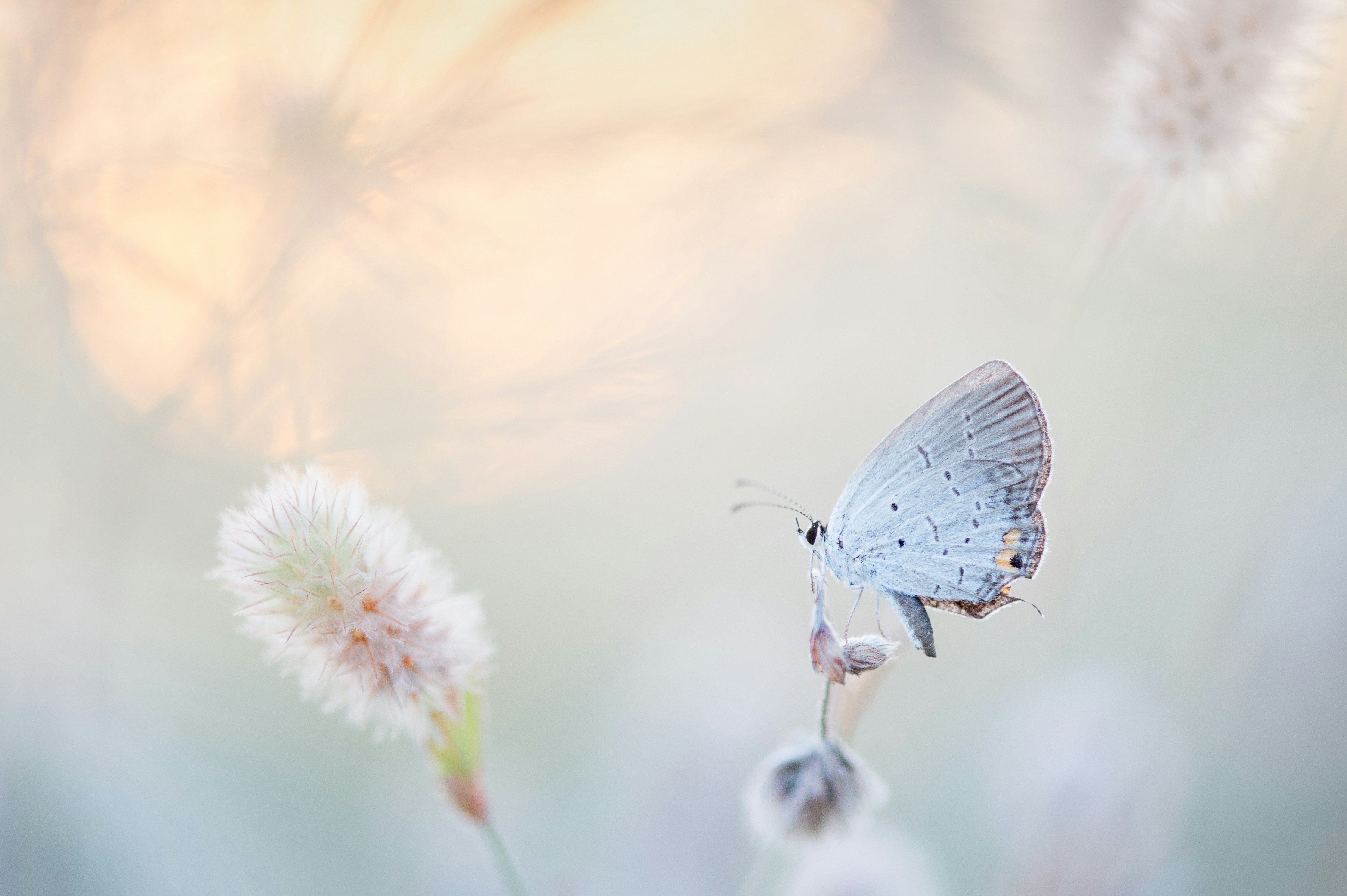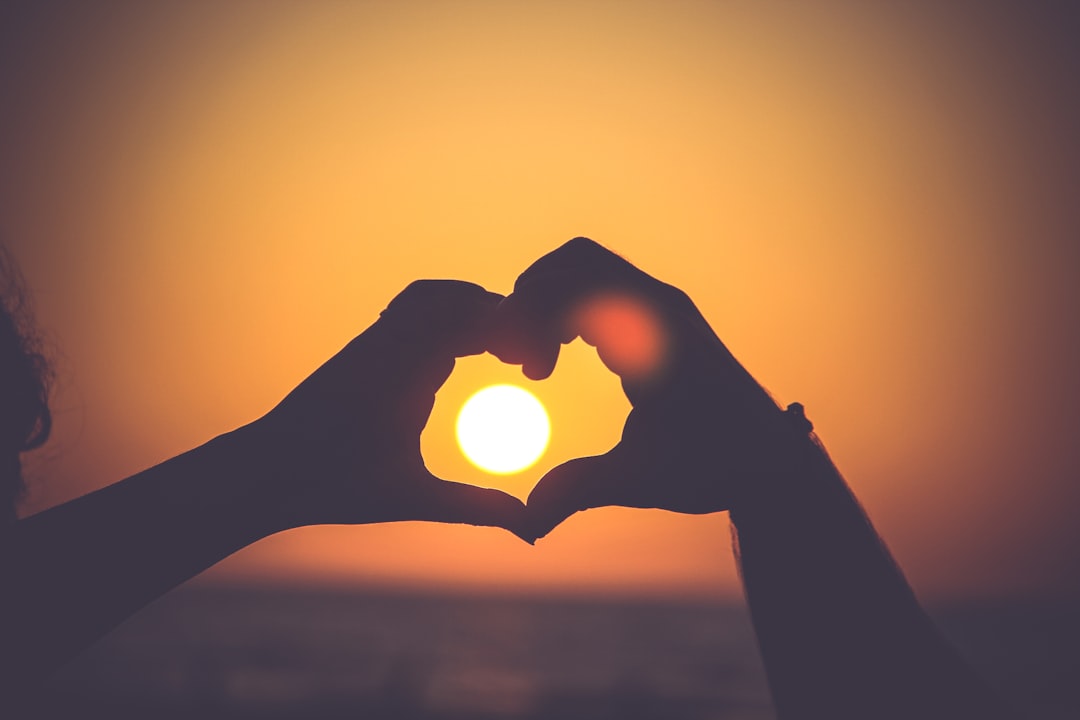Lessons From Winter As The First Green Shoots Of Spring Emerge

Image credit: Nick Fewings / Unsplash
The darkness envelops me as I walk slowly through the woods before sunrise on this Imbolc morning. The air is delightfully cold against my face, a reminder that it is still winter, even amidst our strange new weather patterns. I stand a while to admire the delicate white of the first snowdrops slowly pushing through the frost-covered earth. Their emergence a testament to the resilience of nature even in the darkness of mid-winter. Imbolc was one of the key festivals in the Celtic calendar – halfway between the deepest darkness of the solstice and the vernal equinox.
Our ancestors lit bonfires in honour of Brigid the goddess of fertility on this day, now recognised as St Brigid’s feast day and Candlemass across Christendom. While much of life appeared to die back in the autumn, the great cycle of life was continuing in the underworld beneath our feet, with dead matter being composted in the earth to recycle nutrients as the sun warms the soil again. The first green shoots heralding the promise of spring—a promise of new beginnings and the possibility of growth.
I have embraced this winter like no other, intentionally journeying into the underworld to confront my own shadow and fears. Why am I afraid to set up a new venture on my own despite a track record of successfully conceiving and launching multiple initiatives within the comfort of larger organisations? I ask myself. Why do I still crave approval and affirmation? How do I address the fear of losing the comfort and security of a paycheck by stepping away from the mainstream?
But I know deep down that is only in confronting the darkness, these fears, that I can find a new path. I am reminded of Jung’s insight that “One does not gain wisdom by fixating on light alone, but by acknowledging and integrating the aspects of darkness within ourselves.” This is the important inner work I have all too often neglected in my rush to fix the problem.
Modernity presents a myth of instant gratification, but the reality is that there is no bypassing the hard work of descent and sacrifice if we truly want to transform individually or societally. This truth is echoed in the mythologies of various cultures throughout history. Whether it’s Jesus’s 40 days of temptation in the desert, Orpheus’s descent to Hades to recover his beloved Eurydice, or Odin’s perilous journey to obtain the elixir of knowledge hidden in the underworld in the Norse myth cycle.
Within the sustainability movement, we often overlook this inner aspect of the journey, seeking incremental external fixes for the existing system, convinced this is the only way the mainstream will heed our messages. Yet, as these myths remind us, true growth and transformation require confronting our shadows and embracing discomfort, including changing the system. We must confront the belief that we don’t need to give anything up to transform. The lessons from winter can be harsh, and the longer we cling to this belief, the longer and harsher the winter of transition may become.
Emerging from the deeper darkness into these first stirrings of spring, I dare to dream of a different future. Many friends and former colleagues tell me I am crazy, that deeper change is impossible. Yet, this points to another real crisis we are facing—a crisis of imagination. I have been reading the works of the Buddhist and eco-spirituality teacher Joanna Macy, and two quotes stand out. The first one sits framed above my desk:
‘If the world is to be healed through human efforts, I am convinced it will be by ordinary people, people whose love for this life is even greater than their fear.’
One of the great gifts and lessons from winter for me is to realise that my love for this miracle of life on earth is so much greater than my fear of change and letting go. My love for my own children is beyond measure – what would I not do for them? And as I remember more clearly how interrelated I am to all of life, my love for all children, for future generations, human and non-human also deepens. So how can I not be willing to sacrifice more of my near-term comfort and privilege in service of that deepening love?
The second Macy quote speaks to the moment we are at in the transition. How easy it is to fixate on the dizzying deluge of negative news and the growing levels of anxiety, particularly amongst the young, on whose shoulders we are leaving so much. But she goes on to talk to the waking up and the possibility of new relationship. The bursting forth of new ideas and new possibilities from the soil even amidst the darkness of winter:
‘The most remarkable feature of this historical moment on Earth, is not that we are on the way to destroying the world, we’ve actually been on the way for quite a while. It is that we are beginning to wake up, as from a millennia-long sleep, to a whole new relationship to our world, to ourselves, and each other.’
The other great gift and one of the lessons from winter for me has been the many rich conversations I have had and the research I have done into all the green shoots that are slowly emerging, from the ground up, that point the way to a new economy: ideas of community supported agriculture programs, of community led regeneration in inner cities, of local currencies; a recovering of our memory of the Commons and commoning; projects rekindling relationship to nature, not simply putting up fences to protect it; initiatives that point to new governance and democratic models
So many green shoots that are often marginalised and under the radar, mostly very poorly resourced, and justifiable nervousness of co-option by the mainstream system that has become so adept at capturing and corrupting emergent ideas to incrementally improve business as usual. My work now is to see how to best be of service to some of this emergence. To explore how to be a bridge to some of the tools and resources of the mainstream, without co-option and capture, without the extractive mindset of MarketWorld.
I am reminded this Imbolc of the old Chinese fable called ‘bá miáo zhù zhǎng’ where a young farmer, having planted his seeds, becomes impatient waiting for his crops to grow. He decides to help them along by pulling up the seedlings and tugging on them to make them grow faster. However, instead of aiding growth his actions, of course, harm the delicate plants, and they wither and die. Wintering is also teaching me patience – one of the lessons from winter is the reminder of the discernment of Kairos time versus the constant hurry of Chronos time as I wrote about in another piece.
And therein lies the heart of the matter and the deepest of the lessons from winter —we must walk a Twin Trail. We are often focused solely on the heroic outer work, whether to make ends meet, to get ahead, or to address some of the great challenges of our time. It is too easy to forget the descent, the wintering, which is integral to the mythological hero’s journey, as popularized by Joseph Campbell.
The inner work, the confronting of our shadows and embracing discomfort, is not separate from the external solutions we seek—it is the very foundation upon which they must be built. Without this deeper inner transformation, our efforts to navigate the challenges ahead are likely to be incomplete, our solutions shallow and unsustainable.
The green shoots that promise so much new life may not grow if not in the right soil; or they will whither if we pull on them too hard. The Twin Trail beckons us all—to journey inward and outward simultaneously, to weave the threads of inner growth and societal change into a tapestry of resilience, compassion, and possibility. This is the path to a different future—a path illuminated by the promise of spring ahead, where tender new roots take hold, and the seeds of transformation begin to flourish.
So my urge to all of you reading this is to find some time before the end of winter to sit with the darkness, and see what lessons from winter might be waiting for you. Explore what it feels like to align your energy to the changing seasons, examine what green shoots may be peeking up above the soil, and ask how that might inform the important work you are already doing in the world.

